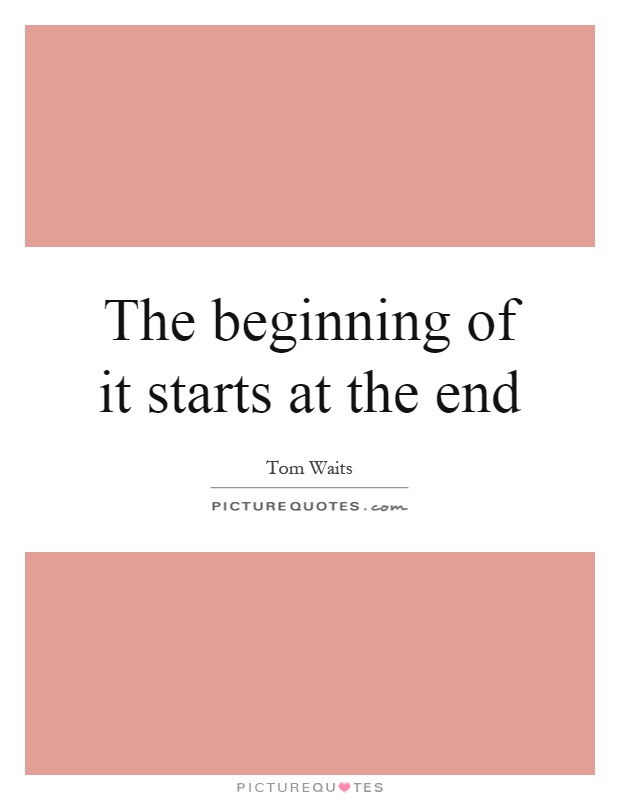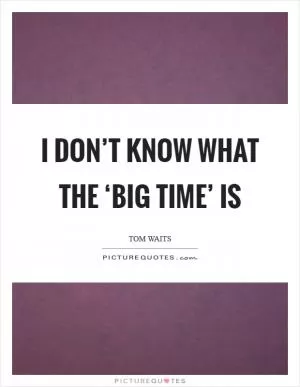The beginning of it starts at the end

The beginning of it starts at the end
Tom Waits is a musician known for his gravelly voice, poetic lyrics, and unique blend of musical styles. His songs often tell stories of the downtrodden, the forgotten, and the lost. One of his most famous albums, "The Heart of Saturday Night," is a perfect example of his storytelling prowess.In the context of Tom Waits, the phrase "The beginning of it starts at the end" takes on a whole new meaning. Waits' songs often explore the darker side of life, delving into themes of loneliness, heartbreak, and despair. In many of his songs, the protagonist is at the end of their rope, facing the consequences of their actions or the harsh realities of the world around them.
But within that darkness, there is also a glimmer of hope, a sense of redemption or renewal. The beginning of a new chapter, a fresh start, can often be found in the ashes of the past. In Waits' music, the end is not the end, but rather the beginning of something new.
Take, for example, the song "Tom Traubert's Blues (Four Sheets to the Wind in Copenhagen)." The protagonist of the song is a broken man, lost and alone in a foreign city. But within his despair, there is a sense of resilience, a determination to keep going despite the odds. The song ends with the haunting refrain, "Waltzing Matilda, waltzing Matilda, you'll go waltzing Matilda with me."
In this song, as in many of Waits' songs, the beginning of a new journey starts at the end of the old one. The protagonist may be down and out, but there is always the possibility of redemption, of finding a new path forward. The darkness of the night gives way to the light of a new day, and the cycle begins anew.












 Friendship Quotes
Friendship Quotes Love Quotes
Love Quotes Life Quotes
Life Quotes Funny Quotes
Funny Quotes Motivational Quotes
Motivational Quotes Inspirational Quotes
Inspirational Quotes